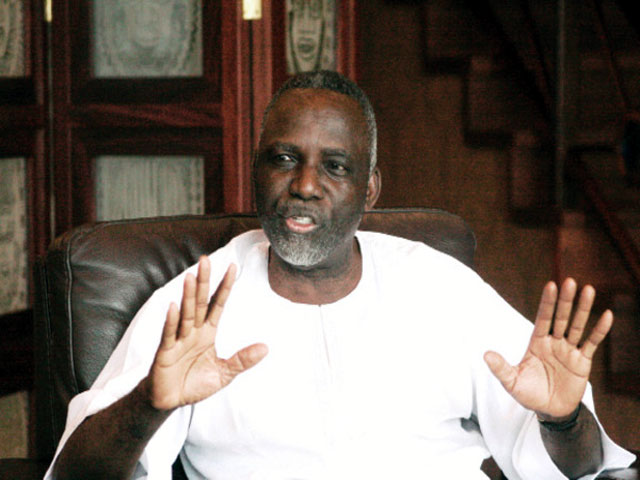Former Minister of Power, Prof. Bart Nnaji, has recommended that state governments adopt Public Private Partnerships (PPPs) to acquire power infrastructure to meet their requirements.
The advice was conveyed by Manji Yarling, Head of Media and Publicity at the Infrastructure Concession Regulatory Commission (ICRC), in a statement released on Saturday in Abuja.
Nnaji shared this insight during the Nigeria Public Private Partnership Network (NPPPN) virtual meeting held in the first quarter of 2024.
According to the NAN report, the meeting centred around the theme, “The Decentralisation of the Nigerian Electricity Supply Industry (NESI) and the role of the states in rural electrification: The private investor’s perspective.”
Prof. Bart Nnaji, who serves as the CEO of Geometric Power Limited acknowledged that while there has been a decentralization of ownership and control of power infrastructure, it remains challenging for states to fully engage in this sector.
Technology implication and adverse competition
He said this was because of the cost, technology implication, and adverse competition where states sought to control the infrastructure.
Nnaji said that the better option was for states to take advantage of the decentralisation to partner and establish a regional grid because of the cost.
- “There are some states that believe that they can easily jump in and begin to develop power infrastructure, but the sort of financial requirement to build power infrastructure is quite a lot.
- “In Nigeria, depending on the fuel source, it will cost about $1.5 million per megawatts.
- “That is a lot just for one megawatt and that is just to build the power plant, and you have not built the substations and all the other required infrastructure.
- “So this is why it is very important that partnerships be strongly encouraged,” he said.
He said PPPs delivered success where states played their role and made their contributions.
- “However, if the states decide that they want to be in control, then we are going back to the NEPA days and that can be a serious problem,” he said.
Decentralization of electricity
Nnaji lauded the decentralisation of electricity, stressing that it would empower local entities to manage their energy resources and improve efficiency.
The former minister said it would also ensure that supply was more responsive to local needs and less vulnerable to systemwide disruptions or collapses.
Nnaji, however, stressed the need to have a cost-reflective tariff to further encourage private sector participation, adding that states must enact and enforce regulations to curb power theft.
He encouraged power companies to deploy technology as had been done in Abia State to combat bypassing of meters.
Michael Ohiani, Director-General, ICRC, said that the meeting afforded participants the opportunity to deliberate on the serious national issue of power.
- “Every hand needs to be on deck as the nation cannot witness significant development in the absence of adequate power supply.”
Ohiani said the theme presented an opportunity to brainstorm and proffer solutions to economic stagnation in states due to the inadequate power supply.
He commended the 26 states in Nigeria that had enacted their PPP laws, stressing that the laws would incentivise private sector involvement in the states.
Ohiani pledged the support of the ICRC to help members of the Network seeking to undertake PPP projects and also states that wanted to enact their laws.
Asishana Okauru, Director-General of, the Nigeria Governors’ Forum (NGF), said that the meeting was apt because of the transformations ongoing in the power sector.
Okauru said that the electricity industry had undergone significant changes in recent years, saying that the discussions at the meeting would provide insights into the roles of states in electrification, including rural areas.
He said that the involvement of states would improve access, adding that state governments could deploy power infrastructure that was tailor-made to their needs.
Okauru, however, cautioned states on inconsistent policies and bureaucracies that could hamper actualisation of the gains of decentralisation.
